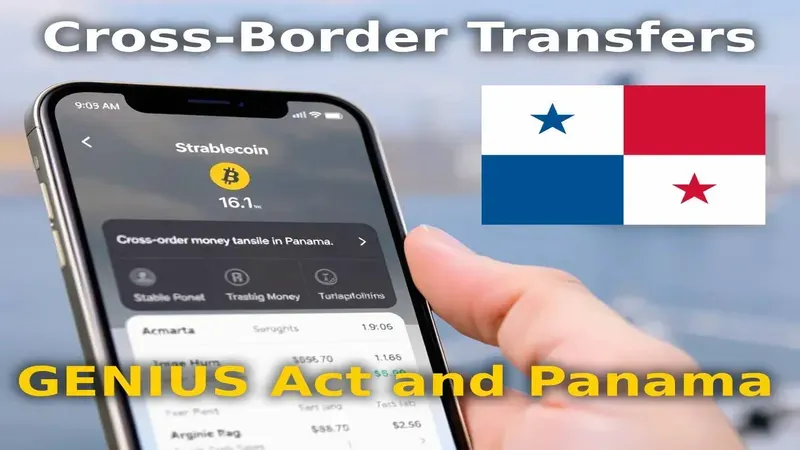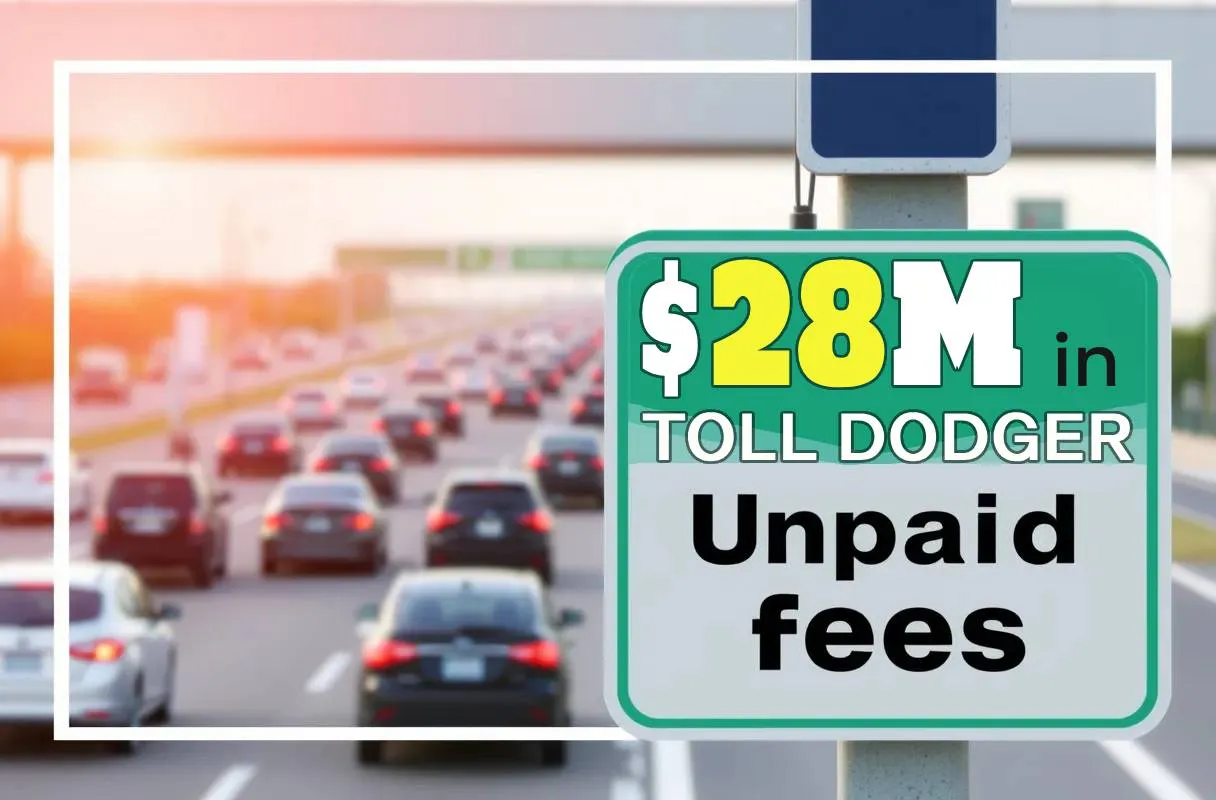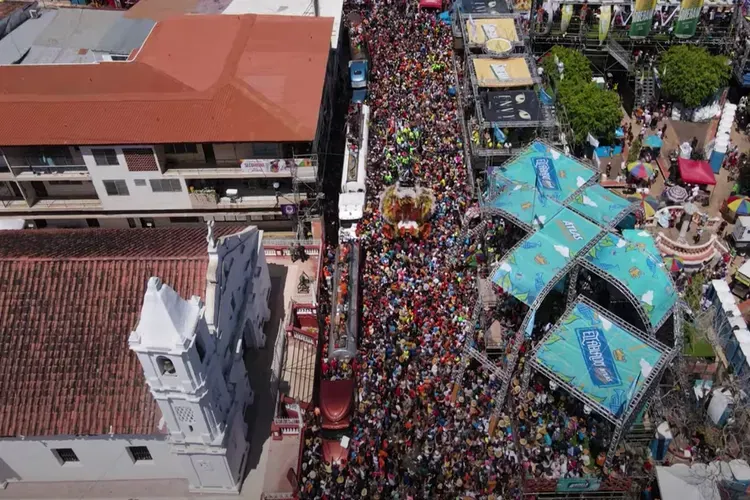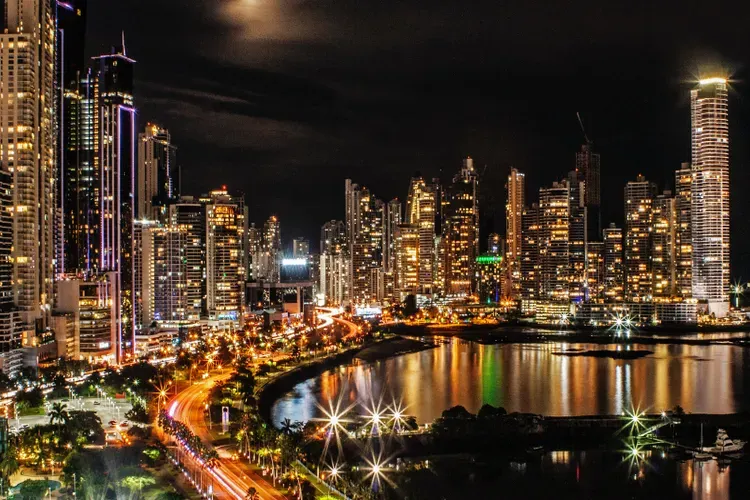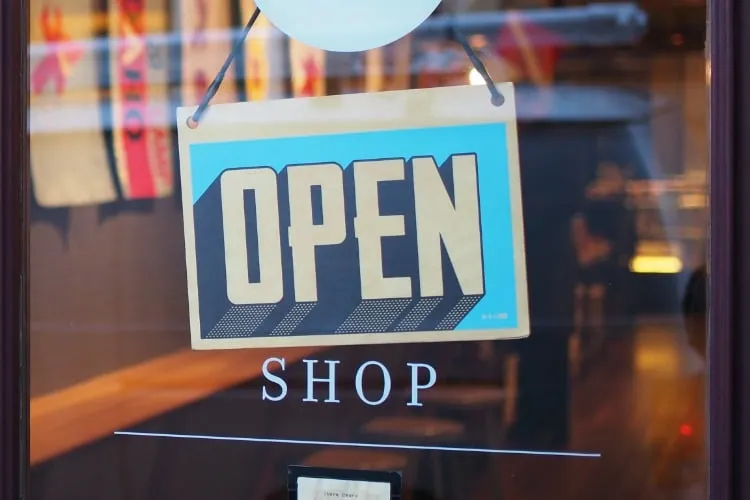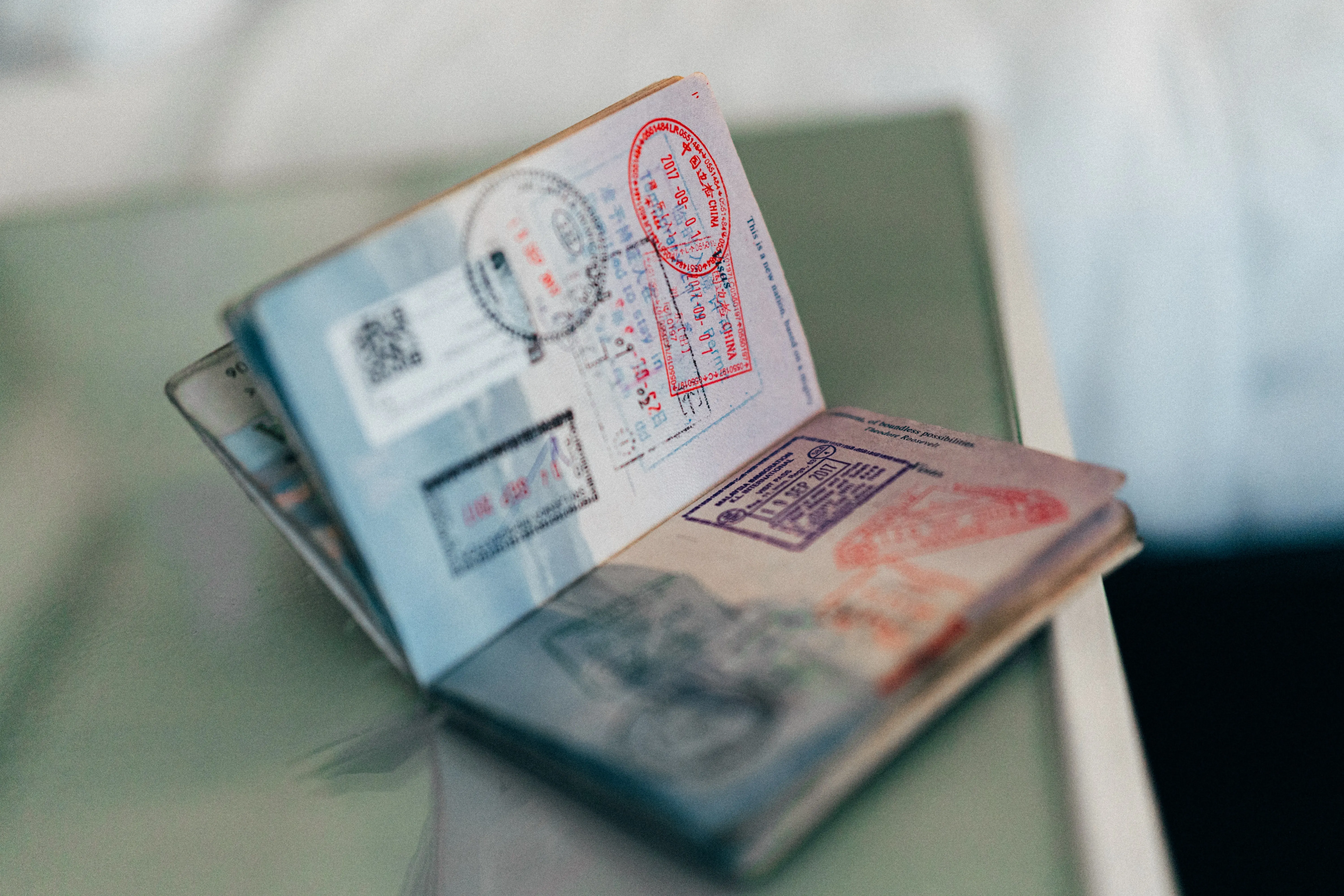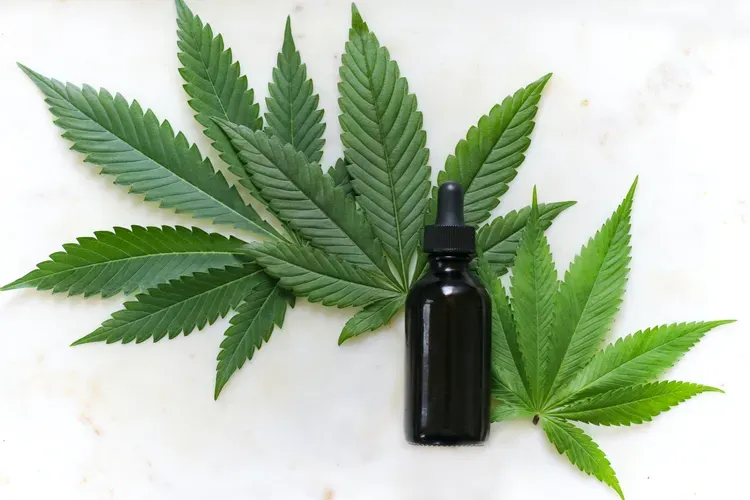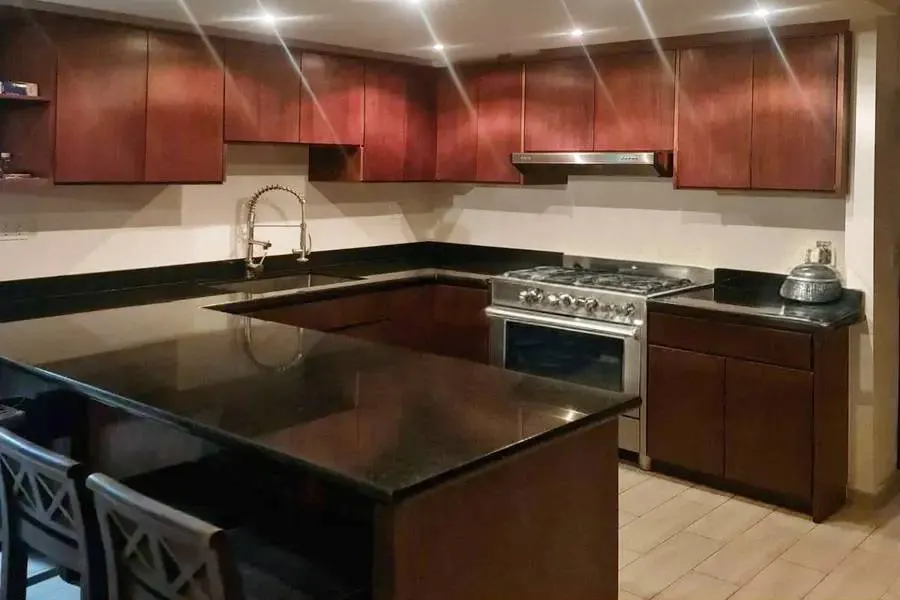"Moving To Panama: Top 50 Common Questions Answered"
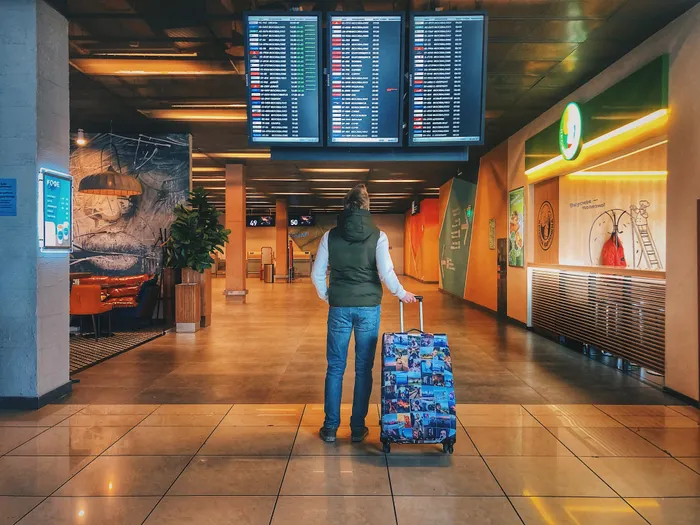
1. Is it true that Panama has the best weather in the world, or is that just a myth?
Panama's weather is certainly one of its top selling points, but best in the world? That's a bold claim! What we can say is that Panama has a tropical climate with two seasons - wet and dry. The dry season runs from December to April, and the wet season runs from May to November. Temperatures are generally warm throughout the year, with highs in the mid-80s Fahrenheit (around 30 Celsius). The humidity can be intense, especially during the wet season, so be prepared to sweat!
2. Can I live comfortably in Panama without speaking Spanish?
It's certainly possible to get by without speaking Spanish in Panama, but it will make your life easier if you make the effort to learn some of the language. Many Panamanians speak at least some English, especially in tourist areas, but outside of those areas, you'll find that Spanish is the primary language. Being able to communicate with your neighbors, shopkeepers, and service providers will help you integrate into your new community and make friends more easily.
3. How easy is it to get a visa for Panama?
The ease of obtaining a visa for Panama depends on a few factors, such as your nationality, your reason for wanting to move to Panama, and your financial situation. For example, retirees who can demonstrate that they have a guaranteed monthly income of at least $1,000 can apply for a Pensionado visa, which can be a relatively straightforward process. Other types of visas, such as work visas or investor visas, can be more complicated to obtain. Your best bet is to consult with a Panamanian immigration lawyer or an embassy or consulate of Panama in your home country to learn more.
4. Can I bring my pets with me when I move to Panama?
Absolutely! Panama is generally pet-friendly, and there are no quarantine requirements for dogs and cats entering the country. You will need to make sure that your pet has all the necessary vaccinations and documentation, and you may want to research pet-friendly accommodations and veterinarians in your area before you arrive.
5. What's the cost of living like in Panama?
The cost of living in Panama varies depending on where you live and your lifestyle, but it's generally lower than in North America or Europe. Housing, food, and healthcare can be particularly affordable, while imported goods and luxury items can be more expensive due to import taxes. As with any country, your budget will depend on your individual circumstances, so do your research and create a realistic budget before you make the move.
6. Are there any good schools in Panama for expat children?
Yes, there are! Panama has a number of international schools that cater to expat children, offering instruction in English or other languages. These schools typically follow an international curriculum, and many are affiliated with respected educational organizations. Some expats also choose to enroll their children in local public or private schools, although this can be more challenging if the child does not speak Spanish.
7. How's the healthcare system in Panama?
Panama has a two-tiered healthcare system, with both public and private options available. The public system is generally considered to be adequate but underfunded, with long wait times and limited resources. The private system, on the other hand, is often praised for its quality and affordability. Many expats opt for private health insurance or pay for medical services out of pocket, as costs are generally lower than in North America or Europe.
8. Do I need to worry about crime in Panama?
As with any country, there is some crime in Panama, but it's generally not too much of a concern if you take common-sense precautions. Like, don't walk alone at night in sketchy areas or flaunt your wealth in public. Petty theft, such as pickpocketing and purse-snatching, is more common than violent crime. As long as you're aware of your surroundings and use your street smarts, you should be just fine.
9. Is it true that the currency in Panama is the U.S. dollar?
Yes, it is true! Panama adopted the U.S. dollar as its official currency in 1904, and it has been used ever since. This can make things a bit easier for American expats who are used to dealing with dollars, but it can also make things more expensive if the dollar is strong. Just remember to carry around some spare change, since Panama also has its own coins (the balboa) that are pegged to the value of the U.S. dollar.
10. How's the internet connection in Panama?
Internet connection in Panama can be decent, depending on where you live. The capital city of Panama City has pretty good coverage, while more rural areas may have slower or less reliable connections. You may want to do some research on internet service providers in your area before you make the move, and don't be afraid to ask your future neighbors for recommendations.
11. Can I drive in Panama with my foreign driver's license?
Yes, you can drive in Panama with a foreign driver's license for up to 90 days. After that, you'll need to obtain a Panamanian driver's license. This can be a bit of a process, involving a written test and a driving test, so make sure to leave yourself plenty of time to get it done before your 90-day grace period expires.
12. Are there any cultural customs I should be aware of before moving to Panama?
Panama has a rich and diverse cultural heritage, with influences from Indigenous, African, European, and Asian cultures. One thing to be aware of is that Panamanians tend to be more reserved and formal than Americans, especially in business settings. It's also important to dress appropriately for different occasions - shorts and flip-flops may be fine for the beach, but a dress shirt and slacks may be more appropriate for a business meeting or formal event.
13. Can I find vegan or vegetarian food in Panama?
Yes, you can! While Panamanian cuisine tends to be meat-heavy, there are still plenty of options for vegans and vegetarians. Many restaurants in urban areas offer vegetarian or vegan options on their menus, and there are also specialty shops that sell plant-based foods and supplements. You may need to do a bit of exploring to find your favorite spots, but rest assured that you won't starve.
14. What's the nightlife like in Panama?
Panama has a vibrant nightlife scene, especially in Panama City. There are plenty of bars, clubs, and casinos to choose from, and many stay open until the early hours of the morning. If you're looking for a wild party scene, you'll find it in the popular tourist areas like Casco Viejo and the Amador Causeway.
15. Can I find work in Panama as a foreigner?
It's possible, but it can be a bit of a challenge. Panama has a relatively small job market, and many jobs require fluency in Spanish. However, there are still opportunities for skilled workers in industries like finance, IT, and hospitality. You may also want to consider starting your own business, especially if you have a unique skill or product
16. How's the healthcare system in Panama?
Panama has a mix of public and private healthcare options, and overall the quality is pretty good. The private hospitals and clinics are generally of a high standard and can be quite affordable compared to the U.S. or Europe. Just be aware that some doctors and medical staff may not speak English fluently, so you may need to brush up on your Spanish medical vocabulary.
17. Is it easy to make friends with locals in Panama?
Panamanians are generally very friendly and welcoming, and making friends shouldn't be too difficult if you put yourself out there. Language can be a bit of a barrier, especially if you don't speak Spanish, but there are plenty of language exchange programs and Meetup groups that can help you practice your language skills and meet new people.
18. Can I bring my pets with me to Panama?
Yes, you can bring your pets with you to Panama, but there are some requirements you'll need to meet first. Your pets will need to be up-to-date on their vaccinations and have a health certificate from a licensed veterinarian. You'll also need to obtain an import permit from the Panamanian government. It's a good idea to start the process well in advance of your move, as it can take several weeks to complete.
19. How's the weather in Panama?
Panama has a tropical climate, with temperatures that are fairly consistent year-round. It can be quite hot and humid, especially in the summer months, but there are also plenty of cooler mountain areas where you can escape the heat. Just be prepared for the occasional downpour - it's not called the "land of eternal rain" for nothing!
20. Is it easy to get around in Panama?
Getting around in Panama can be a bit of a mixed bag. The major cities are fairly well-connected by public transportation, including buses and metro lines. However, if you're living in a more rural area, you may need to rely on your own vehicle or a taxi service. Just be aware that traffic can be pretty chaotic, especially in Panama City.
21. Are there any expat communities in Panama?
Yes, there are plenty of expat communities in Panama, especially in areas like Boquete and Coronado. These communities can be a great way to meet like-minded people and get advice on things like housing, healthcare, and cultural customs.
22. Can I use my U.S. appliances in Panama?
Yes, you can use your U.S. appliances in Panama, but you'll need to make sure they're compatible with the Panamanian electrical system. Panama uses the same voltage and frequency as the U.S. (110-120 volts, 60 Hz), but the electrical outlets are different, so you'll need to use an adapter.
23. Is it safe to drink the tap water in Panama?
It's generally not recommended to drink tap water in Panama, as it can contain harmful bacteria and parasites. Most locals drink bottled or filtered water, and you should too to avoid any stomach issues.
24. Can I buy property in Panama as a foreigner?
"Yes, you can buy property in Panama as a foreigner, and the process is fairly straightforward. However, it's a good idea to work with a reputable real estate agent who can help you navigate the local market and ensure that all legal requirements are met. You can also find homes for sale by owner. It is also worth mentioning that there is no MLS (Multiple Listing Service) in Panama. Make sure to do your due diligence and, in the end, hire a lawyer to represent you during the sale. Always have a lawyer when buying or selling property, whether it involves an agent or not."
25. What's the cost of living like in Panama?
The cost of living in Panama can vary depending on your lifestyle and location. In general, it's quite affordable compared to the U.S. or Europe, with lower prices for things like housing, food, and healthcare. However, if you're living in a more upscale area or seeking out luxury amenities, you can expect to pay a bit more.
26. Is there a lot of crime in Panama?
Like any country, Panama has its share of crime, but overall it's considered relatively safe. Petty theft can be an issue in tourist areas and crowded public spaces, so it's always a good idea to keep an eye on your belongings and avoid flashing expensive items.
27. How's the nightlife in Panama?
Panama City has a vibrant nightlife scene, with plenty of bars, clubs, and restaurants to choose from. You'll find everything from casual dive bars to upscale rooftop lounges, so there's something for everyone. Just be prepared for some late nights - Panamanians like to party until the wee hours of the morning!
28. Can I get by with just English in Panama?
While it's certainly possible to get by with just English in Panama, it's always a good idea to learn some Spanish if you're planning to live there long-term. Many locals speak at least some English, especially in tourist areas, but you'll have an easier time navigating everyday life if you can speak the local language.
29. How's the internet and cell phone service in Panama?
Internet and cell phone service in Panama is generally quite reliable and affordable. You'll find plenty of options for both prepaid and postpaid plans, with good coverage throughout the country. Just be aware that speeds can vary depending on your location and provider.
30. Are there any good beaches in Panama?
Yes, there are plenty of beautiful beaches in Panama, especially along the Pacific and Caribbean coasts. Some of the most popular include Bocas del Toro, San Blas Islands, and Santa Catalina. Just be aware that some beaches can get crowded during peak tourist season.
31. What's the food like in Panama?
Panamanian cuisine is a mix of African, Spanish, and indigenous influences, with plenty of fresh seafood, rice, and beans. Some popular dishes include ceviche, empanadas, and arroz con pollo (chicken and rice). You'll also find plenty of international cuisine options in larger cities like Panama City.
32. How's the education system in Panama?
The education system in Panama is generally good, with free public education available to all children through the 12th grade. There are also plenty of private schools and international schools available for expat families.
33. Can I work remotely from Panama?
Yes, many expats choose to work remotely from Panama, taking advantage of the country's affordable cost of living and beautiful scenery. Just be aware that you'll need to obtain a work visa if you plan to work for a Panamanian company or earn income in the country.
34. What's the best way to get around Panama City?
The best way to get around Panama City is by taxi or public transportation. The city has a modern metro system that runs north-south, as well as plenty of buses and taxis. Just be prepared for some traffic congestion during rush hour.
35. How's the banking system in Panama?
Panama has a modern and stable banking system, with plenty of international banks and ATMs available. However, you'll need to provide proper identification and documentation to open a bank account, and some banks may require a minimum deposit.
36. Can I access healthcare if I don't have insurance?
Yes, you can access healthcare in Panama even if you don't have insurance. Public hospitals and clinics offer affordable care, but wait times can be long and facilities may not be as modern as private options.
37. How's the public transportation in Panama?
Public transportation in Panama can be a bit hit or miss, depending on where you are in the country. Major cities like Panama City have a modern metro system and bus network, while smaller towns may only have a few bus routes. Taxis are also widely available, but be prepared to negotiate the fare beforehand.
38. What's the climate like in Panama?
Panama has a tropical climate, with hot and humid weather year-round. The dry season (December-April) is the most pleasant time to visit, while the rainy season (May-November) can be quite muggy and wet.
39. Can I bring my pets with me to Panama?
Yes, you can bring your pets with you to Panama, but you'll need to make sure they meet all the necessary requirements for entry, including vaccinations and health certificates. You'll also need to arrange for transportation and possibly quarantine, depending on where you're coming from.
40. Is it easy to make friends in Panama?
Panamanians are generally friendly and welcoming, so it's relatively easy to make friends if you're willing to put yourself out there. Joining clubs or groups based on your interests is a good way to meet like-minded people.
41. Can I drive in Panama with my foreign driver's license?
Yes, you can drive in Panama with a foreign driver's license, but you'll need to obtain an international driver's permit (IDP) if your license isn't in Spanish. Be aware that traffic laws and driving customs may be different from what you're used to, so exercise caution on the roads.
42. Are there any dangerous animals in Panama?
While Panama is home to a variety of exotic animals, including monkeys, sloths, and toucans, there are also some potentially dangerous creatures like snakes and spiders. However, encounters are rare and typically occur in more rural areas.
43. Can I buy property in Panama as a foreigner?
Yes, foreigners can buy property in Panama with no restrictions, and there are plenty of real estate options available for expats. However, it's always a good idea to work with a reputable agent or lawyer to ensure a smooth transaction.
44. What's the cost of living like in Panama?
The cost of living in Panama is generally lower than in North America or Europe, especially outside of major cities. You'll find affordable housing, food, and transportation options, although imported goods can be more expensive due to tariffs.
45. How's the shopping in Panama?
Panama has a mix of modern shopping malls and traditional markets, where you can find everything from designer clothes to local handicrafts. Prices can vary widely depending on where you shop and what you're buying, so be prepared to haggle at markets.
46. Can I use my credit cards in Panama?
Yes, you can use credit cards in Panama at most establishments, although smaller shops and restaurants may only accept cash. Be aware that some places may charge a fee for credit card transactions, so it's always a good idea to ask beforehand.
47. What's the drinking water situation in Panama?
Tap water in Panama is generally safe to drink in urban areas, although many locals and expats prefer to drink bottled or filtered water for taste reasons. In more rural areas, it's best to stick to bottled water to avoid any potential health issues.
48. What's the best time of year to visit Panama?
The best time to visit Panama is during the dry season (December-April), when you'll have sunny weather and lower humidity. However, this is also peak tourist season, so expect higher prices and crowds. The rainy season (May-November) can be a good time to visit if you don't mind the wet weather.
49. Can I work in Panama as a foreigner?
Yes, it's possible to work in Panama as a foreigner, but you'll need to obtain a work permit and residency visa first. Depending on your field, finding work may be competitive, but there are opportunities in industries like tourism, teaching, and finance.
50. Is it true that the currency in Panama is the US dollar?
Yes, it's true! Panama actually uses the US dollar as its official currency, which makes things easy for American expats. No need to worry about currency conversion or exchange rates – just make sure you have enough greenbacks in your wallet!

